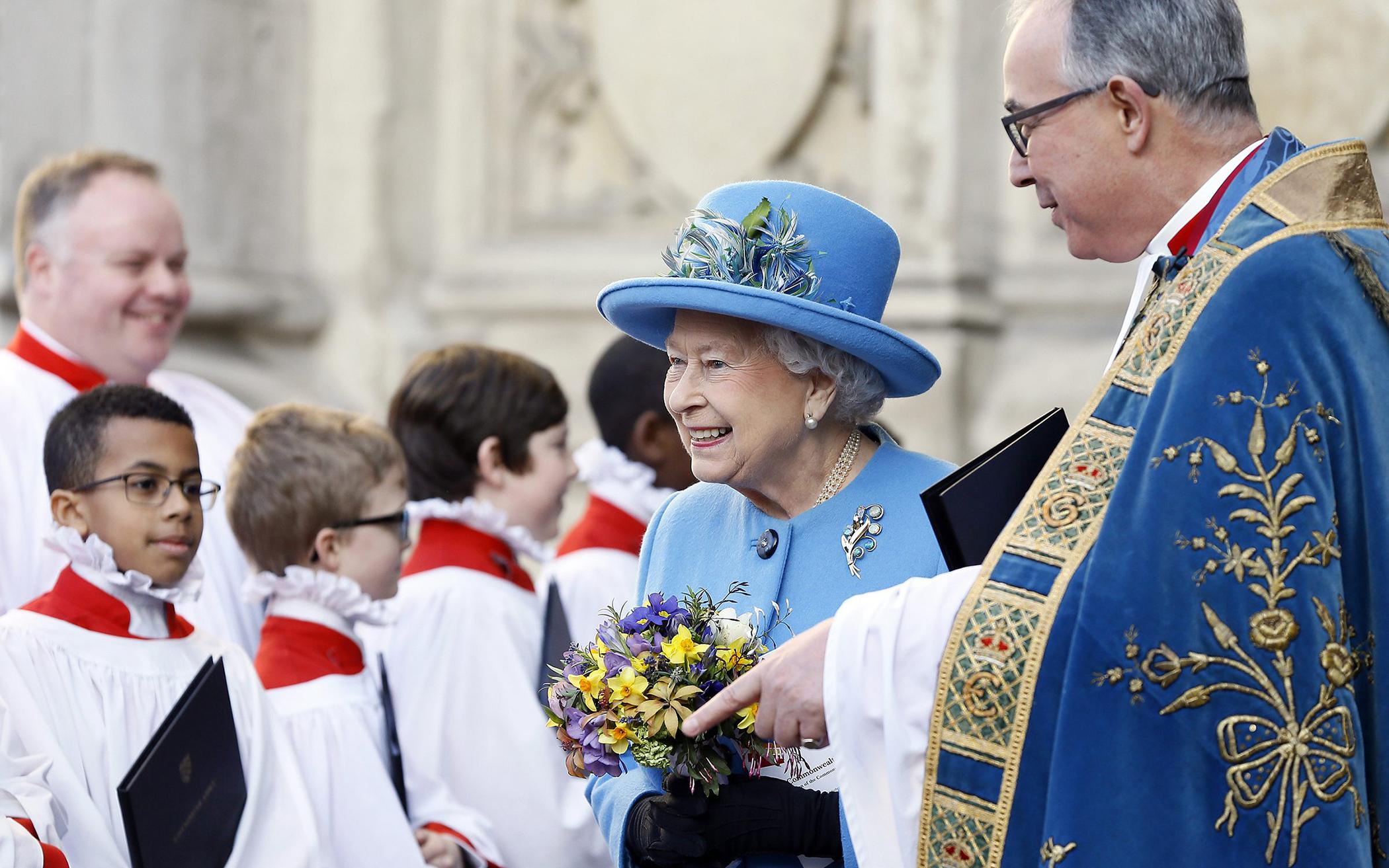The Banner has a subscription to republish articles from Religion News Service. This story by Catherine Pepinster with contributions by Emily McFarlan Miller was published on religionnews.com Sept. 8, 2022. It has been edited for length.
Elizabeth II of England, Britain’s longest-serving monarch and official head of the Church of England, died Sept. 8 at Balmoral Castle in Scotland at age 96. Commonwealth countries, including Canada, are marking her death with a 10-day period of mourning. She came to the throne in 1952 but had dedicated her life to service of her nation six years earlier, as a 21-year-old princess, saying, “God help me to make good my vow.”
The queen’s two titles of Defender of the Faith and Supreme Governor of the Church of England, given to her at her accession, owe their existence to Reformation history. The first was first bestowed on Henry VIII by a grateful pope for the king’s rebuttal of the teachings of Martin Luther. Henry defiantly held onto it even after breaking with Rome to declare himself head of the new Church of England.
His daughter, the first Elizabeth, dubbed herself Supreme Governor of the Church of England, saying Jesus Christ was its head. To this day, the British monarch retains constitutional authority in the established church but does not govern it. The modern Elizabeth left that to the bishops, although she addressed general synods and maintained a role as a listener and guide to her primate, the Archbishop of Canterbury.
On Sept. 8, Archbishop of Canterbury Justin Welby released a statement noting the “signs of a deeply rooted Christian faith” in the queen’s life: her courage even as she mourned her husband, Prince Philip, the Duke of Edinburgh, who died in April 2021; her reminders in the darkest days of the COVID-19 pandemic that darkness cannot overcome light; her service to “her people and her God.”
“As a faithful Christian disciple, and also Supreme Governor of the Church of England, she lived out her faith every day of her life. Her trust in God and profound love for God was foundational in how she led her life—hour by hour, day by day,” Welby wrote.
While Defender of the Faith has been an inherited title and little more, Elizabeth II embraced it and in recent years made it her own, speaking very openly about her faith and explaining how it provided the framework of her life.
She did this mostly through her annual Christmas message, a tradition begun by her grandfather, George V, in 1932, and continued by her father. Her early Christmas Day broadcasts were platitudinous—the holidays as an occasion for family was a frequent theme. In 2000, however, she spoke of the millennium as the 2,000-year anniversary of the birth of Jesus Christ, “who was destined to change the course of our history.”
She went on to speak very personally and frankly about her faith: “For me the teachings of Christ and my own personal accountability before God provide a framework in which I try to lead my life. I, like so many of you, have drawn great comfort in difficult times from Christ’s words and example.” Similar sentiments have been aired at Christmas ever since.
The queen led the nation at regular services honoring the war dead, or offering thanksgiving for her jubilees. She attended church regularly throughout her life and is said to have had an uncomplicated, Bible- and prayer-book-based faith.
That love of the Bible was something she shared with American evangelist Billy Graham, with whom she shared a friendship that Graham’s son Franklin Graham described as “built on a shared love for Jesus Christ and belief in God’s Word.”
“My father said he found Queen Elizabeth ‘to be a woman of rare modesty and character,’ and made a pledge to pray for her and her family every day. He also appreciated how she often talked about Jesus Christ during her public addresses—there was never any question about where she placed her faith,” said Franklin Graham, who heads the Billy Graham Evangelistic Association and Samaritan’s Purse.
Elizabeth relied on the deans of Windsor—the clerics who run St. George’s Chapel at Windsor Castle—for spiritual solace.
Her husband and her son Charles, who succeeds her, has displayed a more intellectual curiosity about religion, including a great interest in both other Christian denominations and other faiths as Britain’s religious landscape has become increasingly diverse.
Elizabeth expressed an increasing openness as well. She encouraged members of all faiths to be present at great church occasions and in the annual Commonwealth Day service at Westminster Abbey. She met five popes—a remarkable turnaround for a monarchy that once broke so spectacularly from Rome—though she never went so far as to ask other religious leaders to be a chaplain or offer other spiritual advice.
At her Platinum Jubilee thanksgiving service at St. Paul’s Cathedral in London, in June, Buddhist and Jewish leaders were present alongside Anglicans and other Christians.
On Thursday, many religious leaders shared statements mourning the queen’s death.
In a telegram offering his condolences to Britain’s new monarch, King Charles III, Pope Francis reportedly wrote, “I willingly join all who mourn her loss in praying for the late Queen’s eternal rest, and in paying tribute to her life of unstinting service to the good of the Nation and the Commonwealth, her example of devotion to duty, her steadfast witness of faith in Jesus Christ and her firm hope in his promises.”
Presiding Bishop Michael Curry of the Episcopal Church, who spoke at the wedding of Prince Harry and Meghan Markle, said in a written statement he was praying for all those who knew and loved Elizabeth.
“Her resilience, her dignity, and her model of quiet faith and piety have been—and will continue to be—an example for so many,” Curry said.
© 2022 Religion News Service
About the Author
Religion News Service is an independent, nonprofit and award-winning source of global news on religion, spirituality, culture and ethics.

